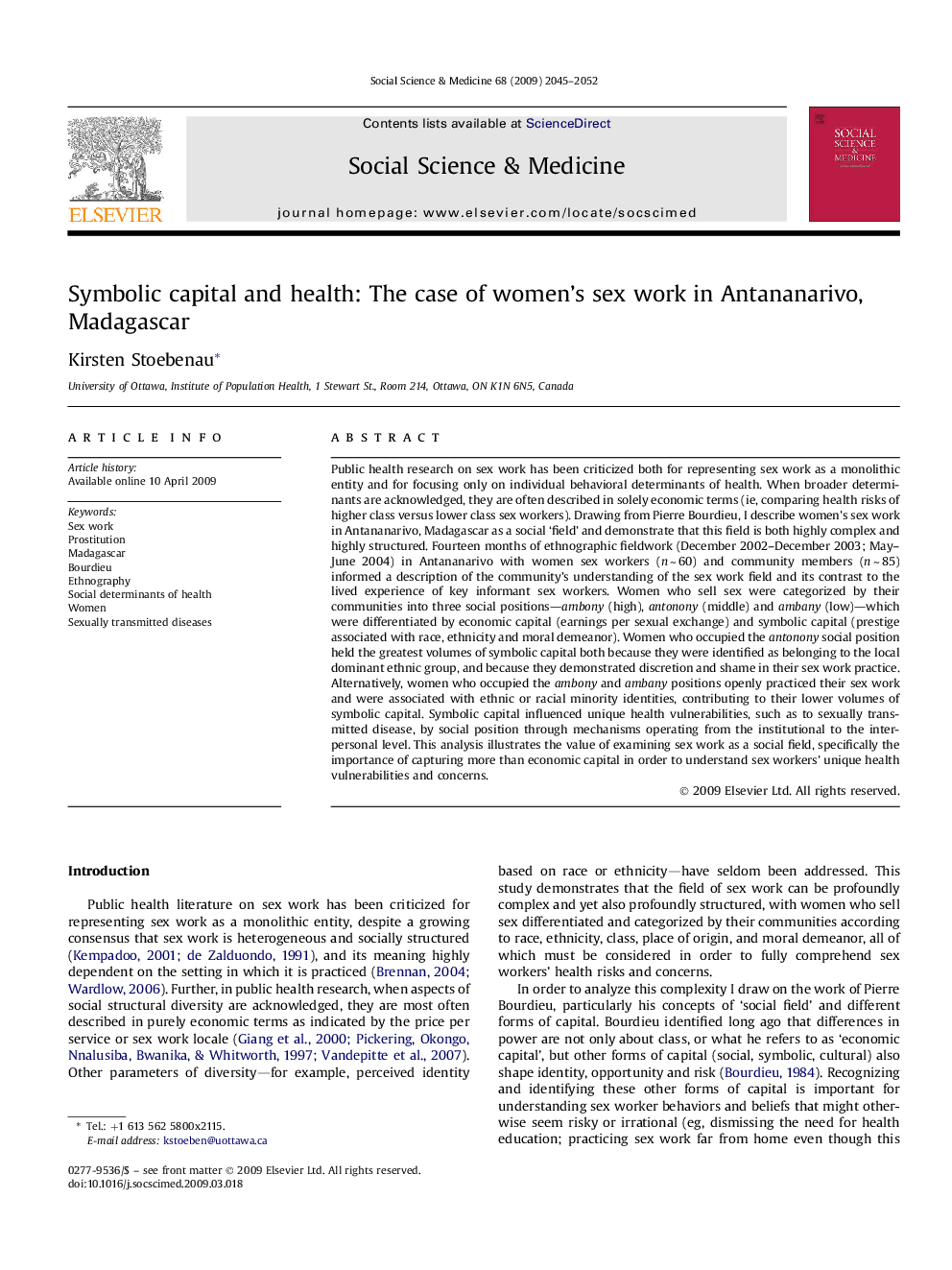| کد مقاله | کد نشریه | سال انتشار | مقاله انگلیسی | نسخه تمام متن |
|---|---|---|---|---|
| 10472196 | 927613 | 2009 | 8 صفحه PDF | دانلود رایگان |
عنوان انگلیسی مقاله ISI
Symbolic capital and health: The case of women's sex work in Antananarivo, Madagascar
دانلود مقاله + سفارش ترجمه
دانلود مقاله ISI انگلیسی
رایگان برای ایرانیان
کلمات کلیدی
موضوعات مرتبط
علوم پزشکی و سلامت
پزشکی و دندانپزشکی
سیاست های بهداشت و سلامت عمومی
پیش نمایش صفحه اول مقاله

چکیده انگلیسی
Public health research on sex work has been criticized both for representing sex work as a monolithic entity and for focusing only on individual behavioral determinants of health. When broader determinants are acknowledged, they are often described in solely economic terms (ie, comparing health risks of higher class versus lower class sex workers). Drawing from Pierre Bourdieu, I describe women's sex work in Antananarivo, Madagascar as a social 'field' and demonstrate that this field is both highly complex and highly structured. Fourteen months of ethnographic fieldwork (December 2002-December 2003; May-June 2004) in Antananarivo with women sex workers (n â¼Â 60) and community members (n â¼Â 85) informed a description of the community's understanding of the sex work field and its contrast to the lived experience of key informant sex workers. Women who sell sex were categorized by their communities into three social positions-ambony (high), antonony (middle) and ambany (low)-which were differentiated by economic capital (earnings per sexual exchange) and symbolic capital (prestige associated with race, ethnicity and moral demeanor). Women who occupied the antonony social position held the greatest volumes of symbolic capital both because they were identified as belonging to the local dominant ethnic group, and because they demonstrated discretion and shame in their sex work practice. Alternatively, women who occupied the ambony and ambany positions openly practiced their sex work and were associated with ethnic or racial minority identities, contributing to their lower volumes of symbolic capital. Symbolic capital influenced unique health vulnerabilities, such as to sexually transmitted disease, by social position through mechanisms operating from the institutional to the interpersonal level. This analysis illustrates the value of examining sex work as a social field, specifically the importance of capturing more than economic capital in order to understand sex workers' unique health vulnerabilities and concerns.
ناشر
Database: Elsevier - ScienceDirect (ساینس دایرکت)
Journal: Social Science & Medicine - Volume 68, Issue 11, June 2009, Pages 2045-2052
Journal: Social Science & Medicine - Volume 68, Issue 11, June 2009, Pages 2045-2052
نویسندگان
Kirsten Stoebenau,